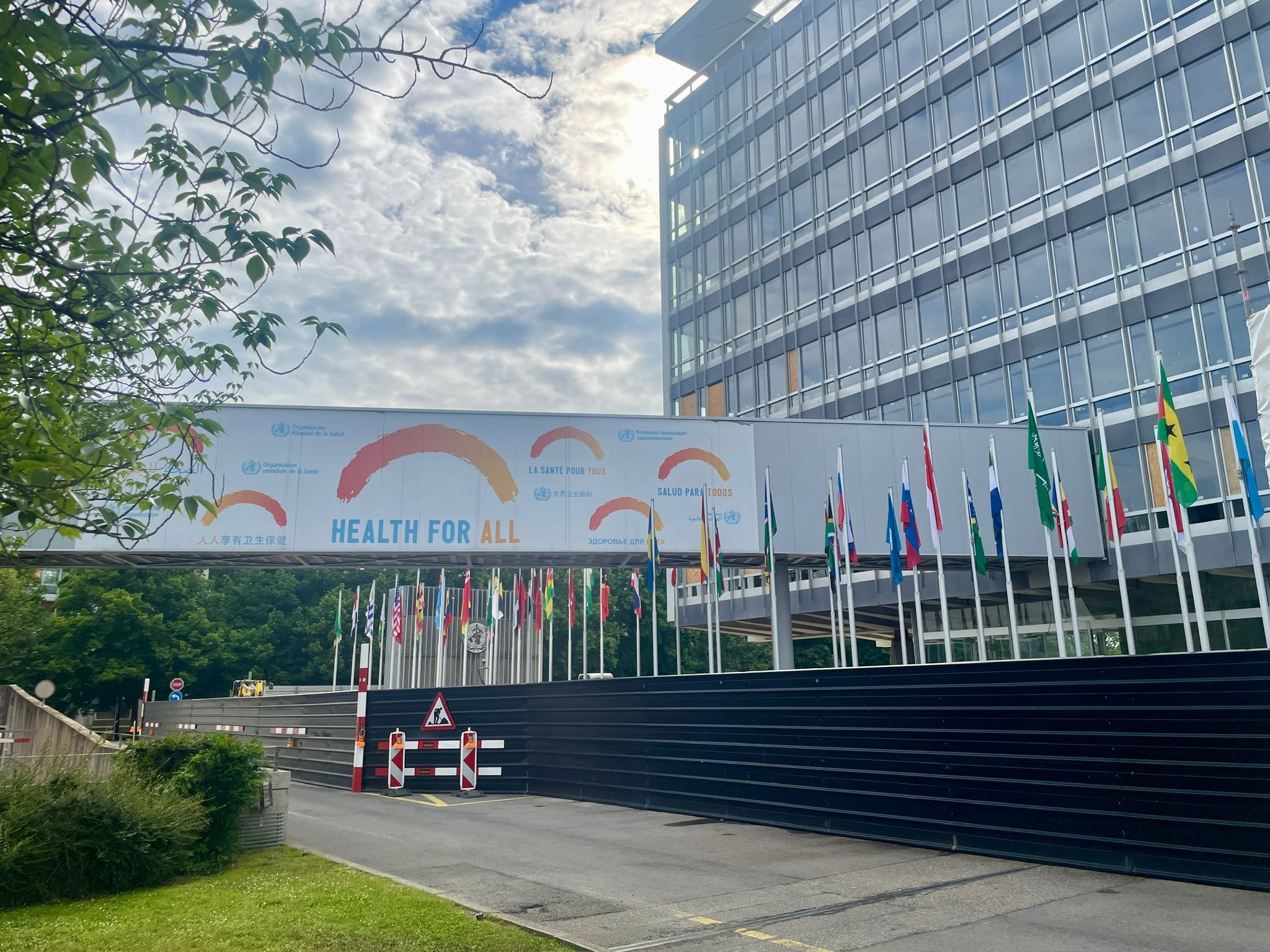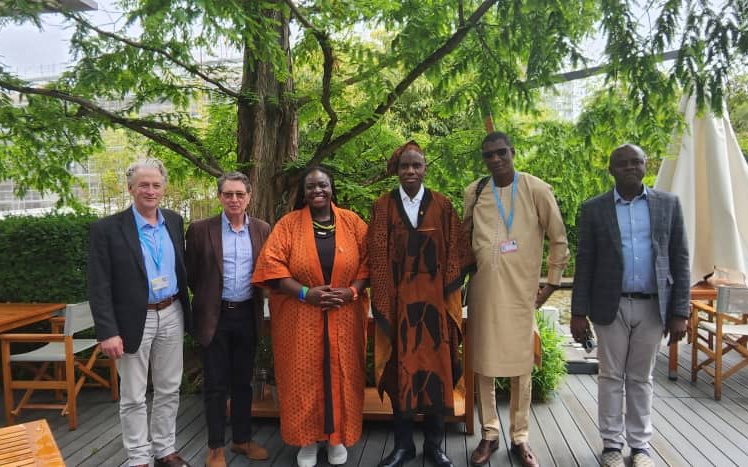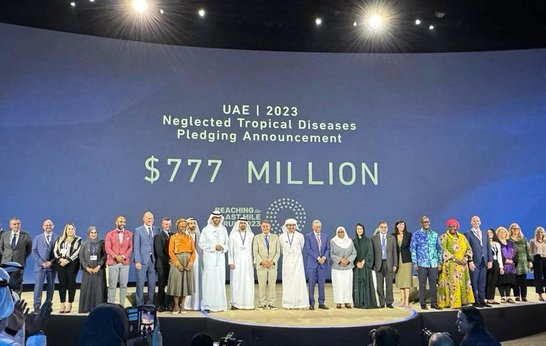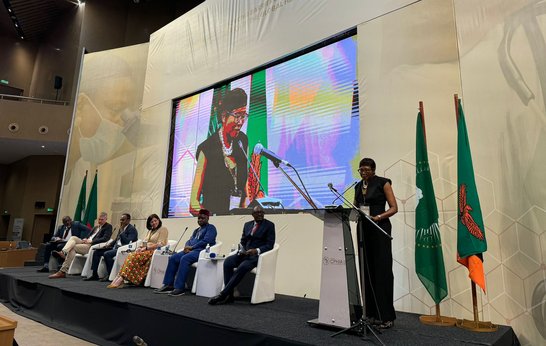Uniting to Combat NTDs recently attended the 77th World Health Assembly (WHA) from 27 May – 1 June 2024, hosted by the World Health Organization (WHO) in Geneva, Switzerland. Under the theme ‘Health for All’, it was a week full of events, bilaterals, and meeting partners to build support for financing neglected tropical diseases (NTDs) and advancing our resource mobilisation work.
Here are some of our highlights:
“We can’t allow millions more children to suffer from diseases like schistosomiasis” – Merck and Africa Council
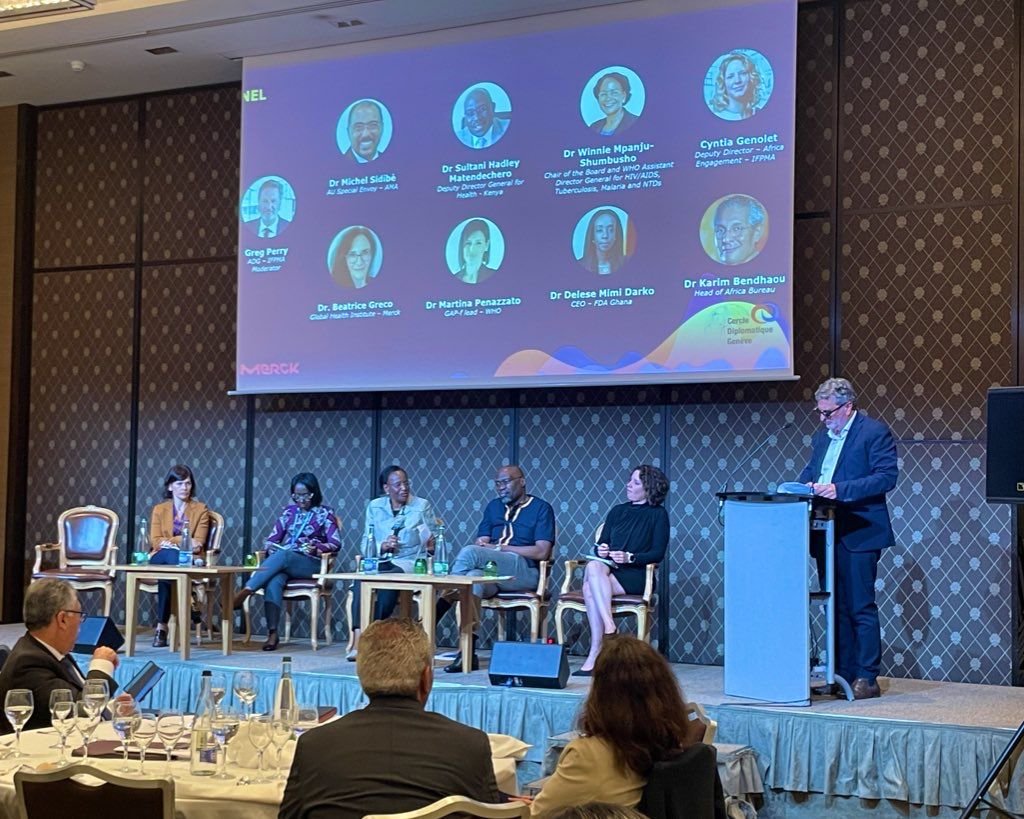
The Chair of the Uniting Board, Dr Winnie Mpanju-Shumbusho, spoke as part of Merck and Africa Council’s side event on ‘Africa Excellence in Research & Development’, outlining the impact of schistosomiasis on children and sharing her own personal experience of growing up in Tanzania and avoiding bodies of water whilst going to school where the disease was present.
She asked what are we waiting for to make this preventable disease a priority and said:
“When political will is there, money follows. Let us optimise our resources and the programmes that we have already to think about health holistically and no longer work in silos”
in a rallying call to beat diseases like schisto.
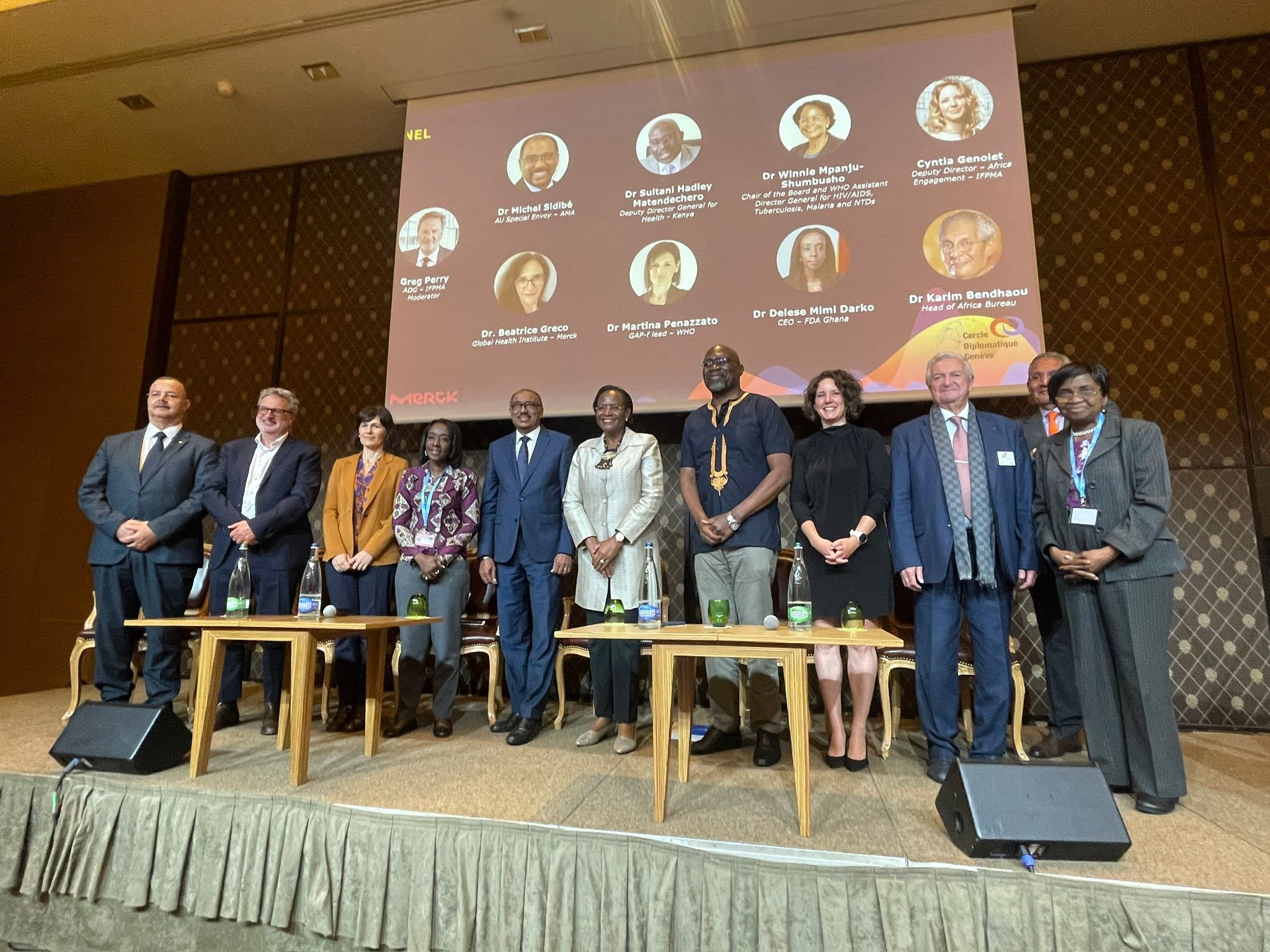
“Let’s get the job done and celebrate NTD elimination success in 2030” – Devex Checkup
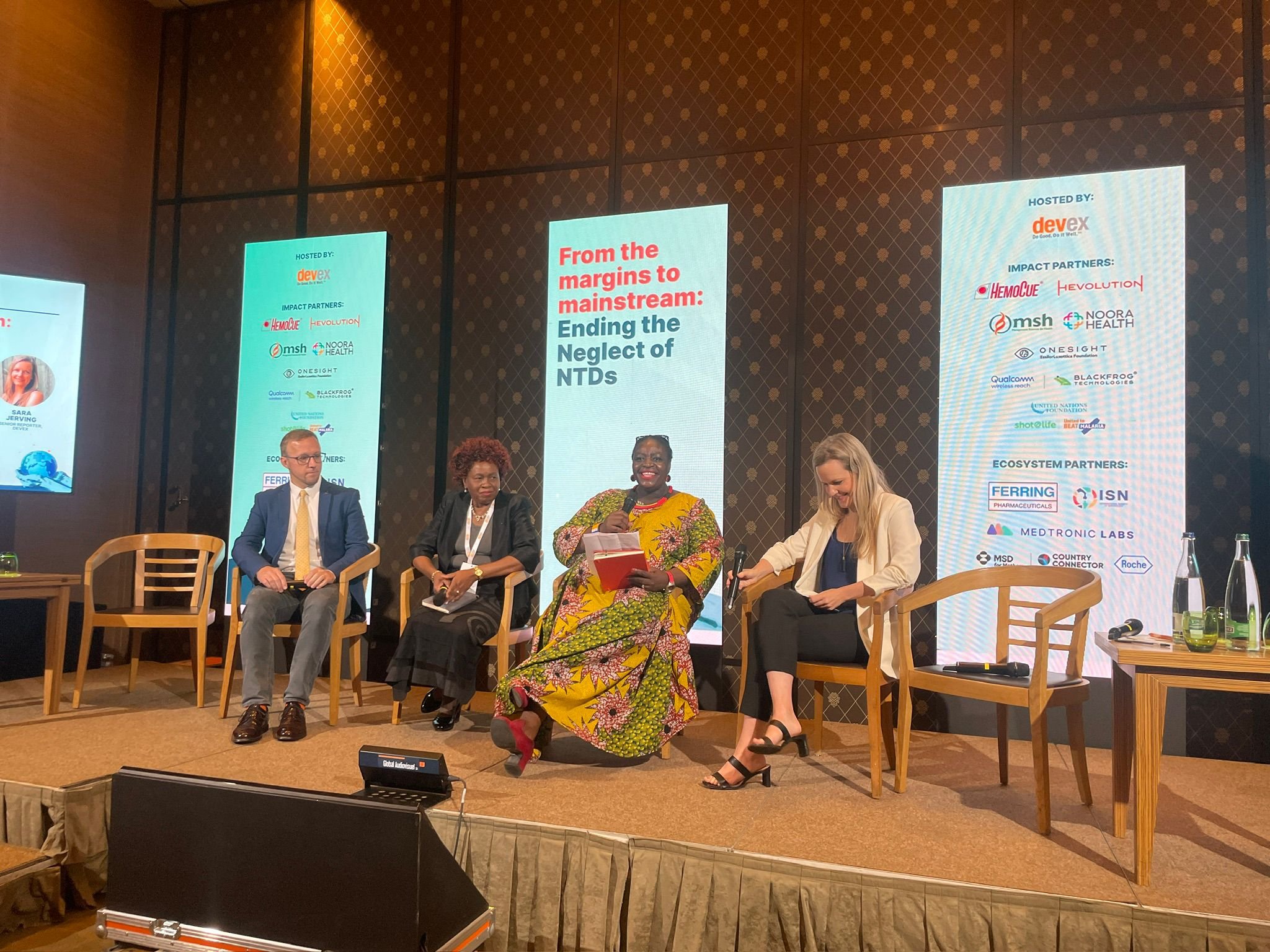
Our Executive Director, Thoko Elphick-Pooley, was part of Devex’s Checkup event ‘From the margins to mainstream: Ending the neglect of NTDs’ alongside esteemed panellists Dr Monique Wasunna of DNDi and Adam Weiss of the Carter Center. Thoko opened the session with examples of disease elimination successes from two different countries, Togo and Mali, with the common denominators of political will, fantastic community health workers and dedicated partners in the fight.
Thoko was asked the important question of how we access sustainable funding for NTDs. She shared context of the difficult landscape we are operating in at the moment, meaning countries need to be able to access dedicated grant financing like that offered by the World Bank’s IDA to enable them to deliver for the poorest people affected by NTDs.
On what she would like to see from the international community to tackle NTDs, she said:
“A fully funded IDA21 that has disease elimination as an initiative. Let’s get the job done and celebrate NTD elimination success in 2030.”
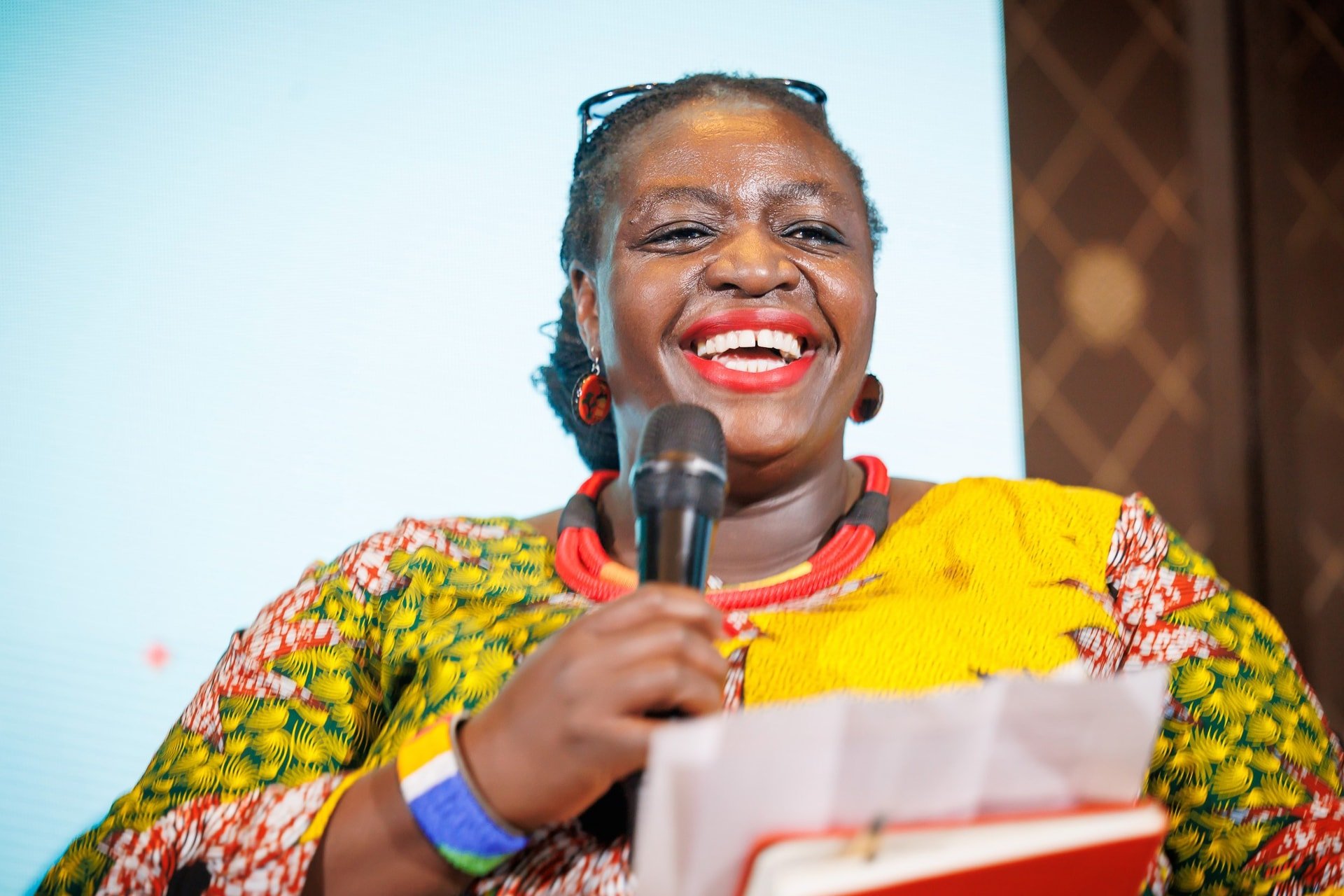
© Marc Bader
“Let’s work together so the health impacts of climate change are visible to decisionmakers” - IFPMA
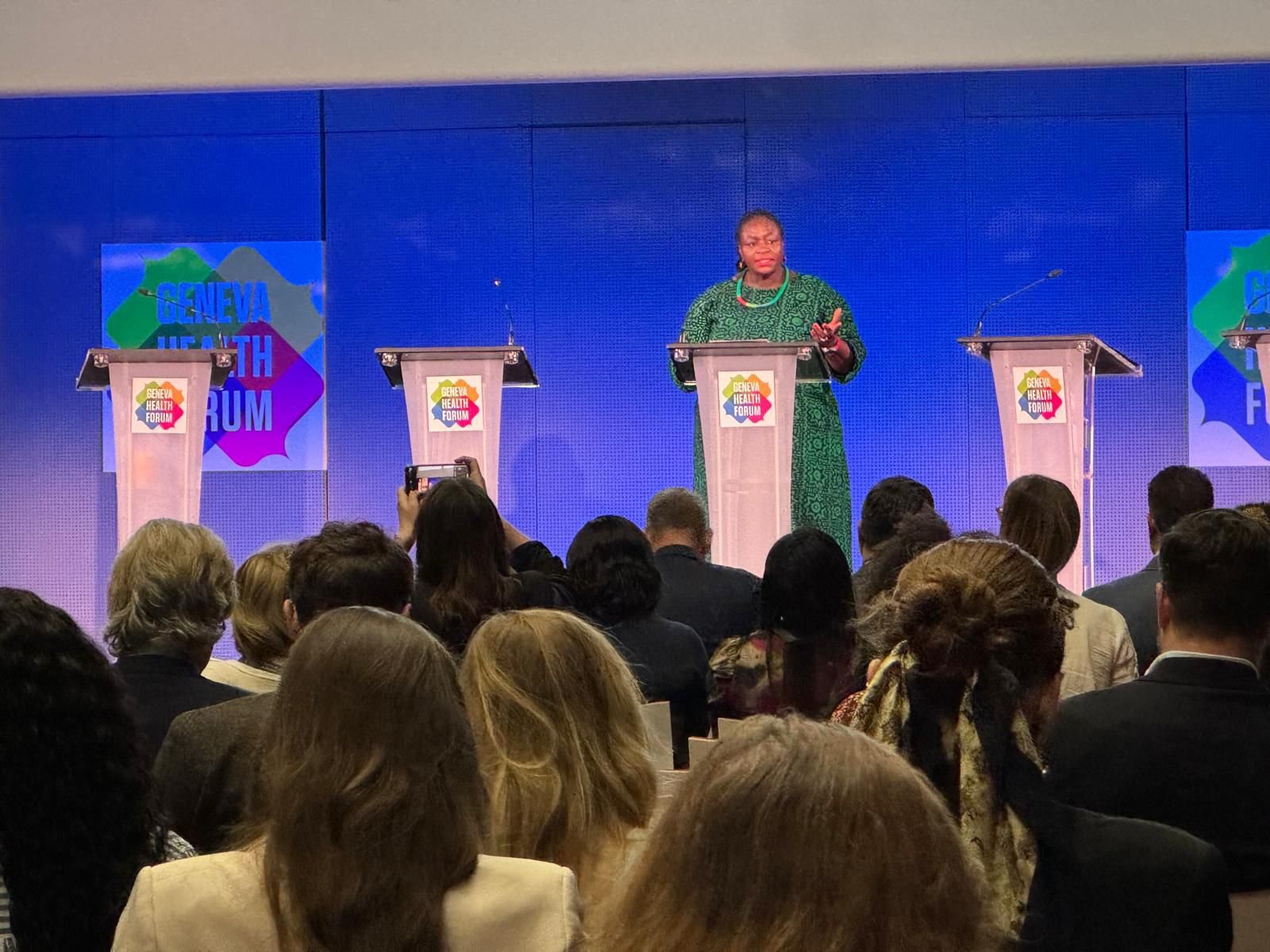
Thoko Elphick-Pooley was also invited to speak at IFPMA’s event as part of the Geneva Learning Forum on ‘Accelerating Action Against Vector-Borne and Infectious Diseases’. She opened with a powerful keynote, setting the scene on how climate change is affecting the spread of NTDs around the world. She shared Samal’s story, a farmer and woodcutter working in Nepal who contracted visceral leishmaniasis, a disease that had previously never reached the highlands of the country but now due to warming temperatures, has reached new communities.
She finished with a rallying call to action:
“I call on everyone in this room to be an advocate, to work together to make sure the health impacts of climate change are visible to decisionmakers in order to unlock vital action and funding.”
Read more on Thoko’s speech in this Health Policy Watch article - Cabo Verde Minister of Health: 5 Steps to Eliminate Malaria
“The results speak for themselves” – NTD elimination successes referenced in WHO speeches
We were delighted that NTD elimination successes were referenced in several speeches from WHO officials.
In his WHA77 report to delegates, Dr Tedros Adhanom Ghebreyesus, Director-General of WHO, shared progress on beating NTDs, recognising that in 2023, six countries eliminated one or more NTDs with Benin, Iraq and Mali eliminating trachoma, Ghana eliminating sleeping sickness, Bangladesh and Laos eliminating lymphatic filariasis, and Bangladesh becoming the first country in the world to eliminate visceral leishmaniaisis.
Dr Matshidiso Moeti, WHO Regional Director for Africa, also spoke at the side event ‘10 Years of Transformation – Improving the Health of the People of Africa’ where she recognised these successes on the continent. She said:
“We are very encouraged by the progress made against Neglected Tropical Diseases (NTDs), and know that our Expanded Special Project for the Elimination of NTDs, a small, lean but extremely effective team within the NTD programme, has played a central role in this. The first data, which includes interactive dashboards, maps and datasets, is already proving invaluable, informing actions including through national NTD master plans and annual work plans, and partners’ support. The results speak for themselves: By the end of 2023, 19 Member States had eliminated at least one NTD, and Togo had become the first country worldwide to eliminate four NTDs.”
Other great moments and resources coming out of WHA:
- Reaching the Last Mile side-event – Towards an Africa free of NTDs
We were thrilled to join with partner Reaching the Last Mile for their side-event, held under the theme ‘towards an Africa free of NTDs,’ bringing together country representatives and partners. It was a great opportunity to celebrate the incredible progress of African countries to date, and to take the next step in the journey to beat NTDs. See some photos in RLM’s Instagram post. - DNTDs virtual side-event - Fighting NTDs in Africa, ensuring sustainable progress
The German Network against Neglected Tropical Diseases (DNTDs), the German Federal Ministry for Economic Cooperation and Development (BMZ) and its implementing organization, the Deutsche Gesellschaft für Internationale Zusammenarbeit (GIZ) held a virtual side event on the Expanded Special Project for the Elimination of Neglected Tropical Diseases (ESPEN) which highlighted progress, particularly in relation to One Health. Read DNTDs write-up. - Statements and interventions on NTDs from partners
Several partners presented statements on NTDs including American Leprosy Missions Director of Research and Innovation, Dr. Sundeep Chaitanya Vedithi, recognising the challenges and progress in combatting leprosy, and DNDi’s interventions urging member states to invest in health tools for NTDs and support not-for-profit models. - Policy Cures Research report - The Impact of Global Health R&D
Investment in research to tackle neglected diseases has fallen since the pandemic. And yet the success of global health R&D over the past 20 years is a resounding one. In breakthrough work, Policy Cures Research analyse the impact of global health R&D in this report launched at WHA, showing the return on investment in health and economic terms for the first time. They look at the gamechangers over the last two decades and model the future returns of health innovations which transform the health and economic outlook for vulnerable populations. Read the report. - The END Fund paper - The Importance of Climate Action for NTD Elimination and Health Systems
The END Fund released their latest paper to advance the discourse around the important but nascent climate and neglected tropical disease nexus. It represents the perspectives of partners working across the health and climate spectrum in academia, philanthropy, government, international organizations and nonprofits. It recommends a need to build evidence in order to drive climate and NTD investment; greater integration of climate action into health strategies; and for increased cross-sectoral learning and collaboration amongst climate, health, and development stakeholders. Read the paper.
